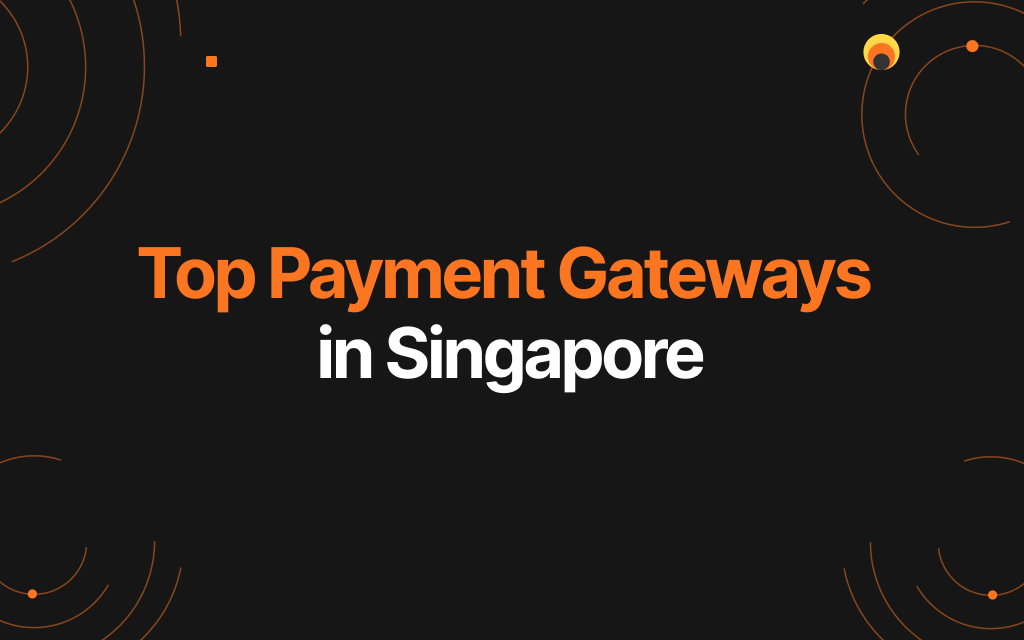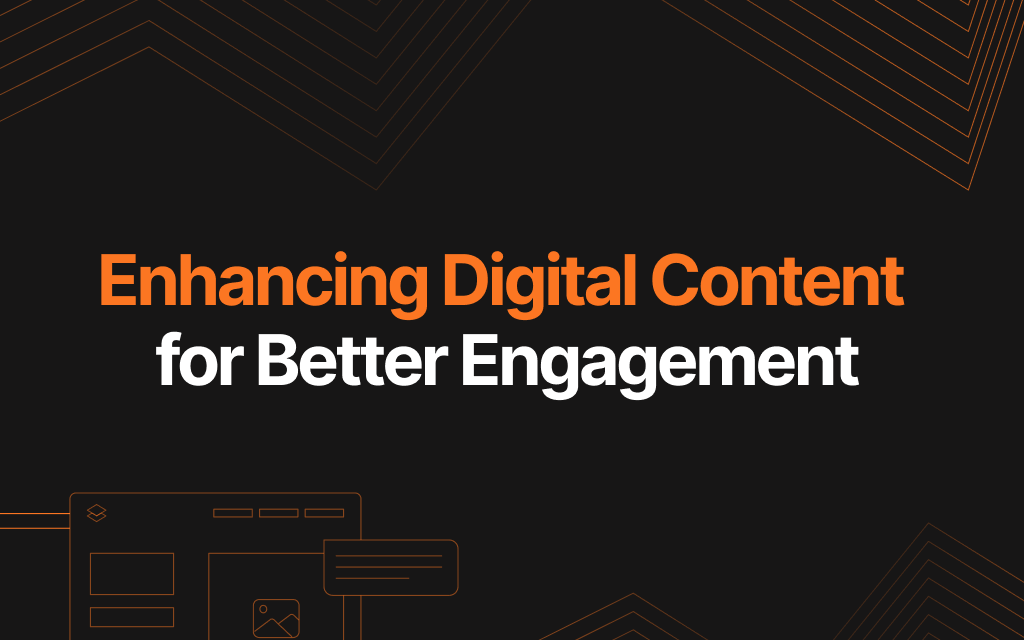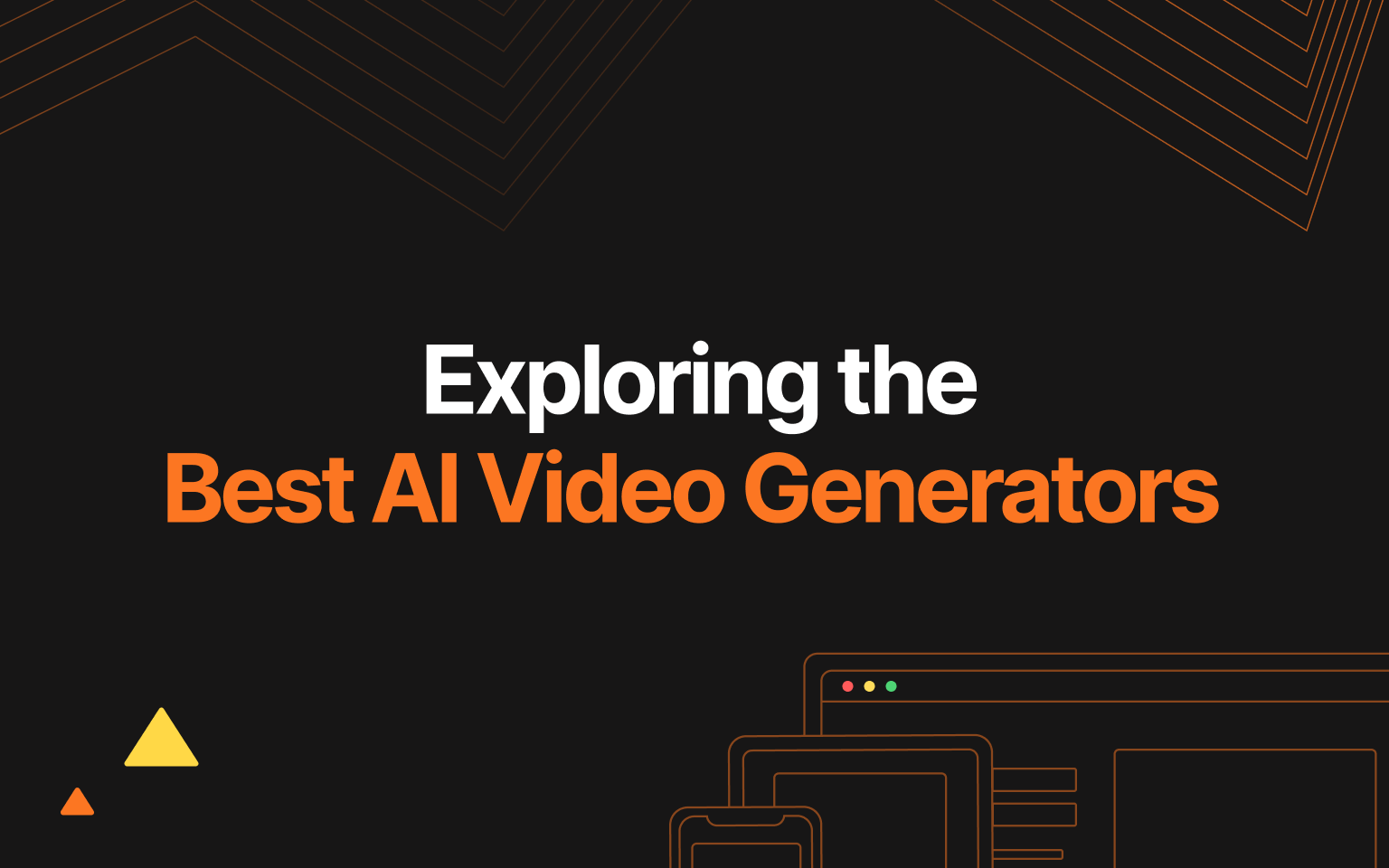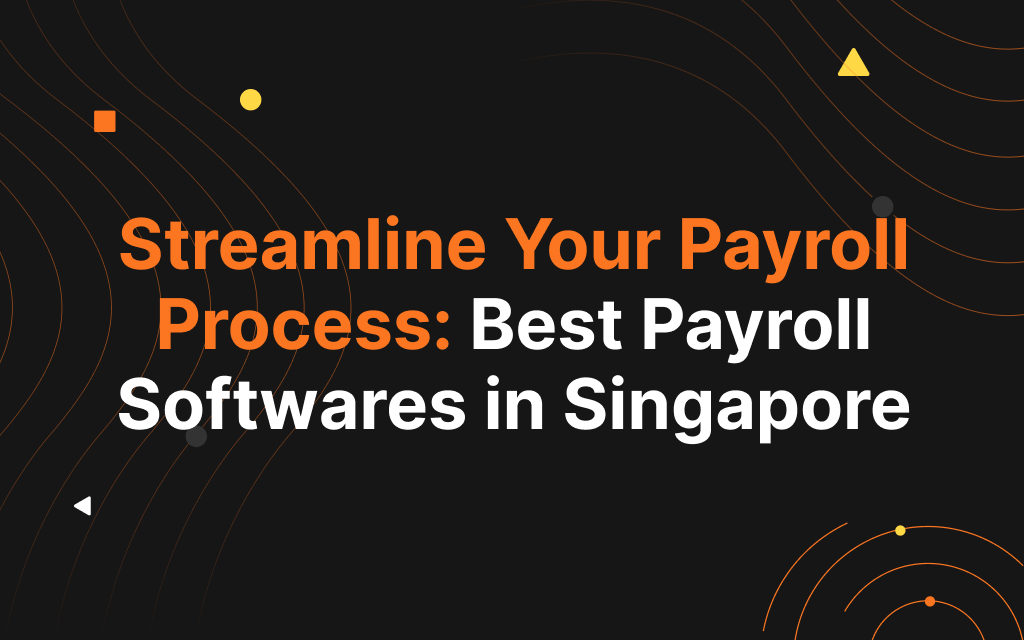Are you a business owner seeking to leverage AI for growth and success, an entrepreneur looking to launch an AI-driven startup, or simply an enthusiast curious about AI?
Join us as we navigate the AI landscape in Singapore, learn about the frameworks that guide its implementation in the country, and explore the various resources you can tap into to build on your AI expertise.
What is Artificial Intelligence?

Artificial Intelligence (AI) is the simulation of human intelligence in machines programmed to think, learn, and problem-solve like humans.
It’s a multidisciplinary field encompassing various branches of computer science, including machine learning, natural language processing, computer vision and robotics.
AI systems are designed to analyse and interpret vast amounts of data, recognise patterns, and make decisions or take actions based on that analysis. They can process information much faster than humans and can handle complex tasks with great accuracy.
The Two Main Types of AI
Narrow AI
Also known as weak AI, narrow AI is designed for specific tasks and operates within predefined limits. Examples include voice assistants, image recognition software and recommendation systems.
General AI
Refers to highly autonomous systems that possess human-like intelligence and can perform any intellectual task that a human being can do.
Key Elements of AI
Machine Learning
Machine learning is a subset of AI that enables systems to learn from data and improve their performance without explicit programming.
It involves the development of algorithms that allow machines to recognise patterns, make predictions and take actions based on the provided data.
Natural Language Processing (NLP)
NLP focuses on the interaction between computers and human language. It involves the processing and understanding natural language in written or spoken form.
NLP enables machines to understand, interpret, and respond to human language, facilitating tasks like speech recognition, language translation and sentiment analysis.
Computer Vision
Computer vision involves interpreting and analysing visual data such as images and videos.
It enables machines to perceive and understand the visual world, recognise objects, detect patterns, and extract meaningful information from visual inputs. Applications include facial recognition, object detection, and autonomous driving.
Robotics
Robotics combines AI with physical systems to create machines that can interact with the physical world.
It involves designing and developing robots that can perceive their environment, make decisions, and perform tasks autonomously or with human guidance. Robotic systems are used in manufacturing, healthcare, exploration, and assistance.
How is AI Implemented in Singapore Today?
Singapore has embraced and implemented artificial intelligence (AI) in various sectors. Here are some examples of how AI is being used in Singapore:
Smart Nation Initiative
The Singapore government launched the Smart Nation Initiative in 2014, with AI being a crucial component of this initiative.
It aims to harness technology, including AI, to improve the quality of life for citizens, enhance government services, and drive economic growth.
Healthcare
AI is being used in healthcare in Singapore to enhance diagnostics, improve patient care, and optimise healthcare operations.
For instance, AI-powered systems are employed for the early detection of diseases, personalised medicine, and predictive analytics.
For example, Tan Tock Seng Hospital in Singapore has implemented an AI system called Blade, enabling quicker and more precise medical diagnosis and intervention through blood tests.
Transportation and Urban Planning
Singapore utilises AI for traffic management, public transportation optimisation and urban planning.
The Land Transport Authority (LTA) uses AI algorithms to analyse traffic data and optimise traffic signal timings. Additionally, autonomous vehicles and smart mobility solutions are being tested and deployed in Singapore.
Financial Services
The financial sector in Singapore is incorporating AI for fraud detection, risk assessment, customer service and investment strategies.
Companies like DBS Bank and OCBC Bank use AI-powered chatbots to assist customers, while AI algorithms are employed for fraud detection and credit scoring.
Education
AI is being explored in Singapore’s education sector to enhance personalised learning experiences, provide intelligent tutoring, and improve administrative processes.
For instance, Singapore’s AI Centre for Educational Technologies (AICET) has developed Codaveri, a program that provides feedback and guidance to students working on coding assignments.
Research and Innovation
Singapore actively promotes research and development in AI.
Institutes like AI Singapore (AISG), a national AI program, and the Agency for Science, Technology, and Research (A*STAR) conduct AI-related research and collaborate with industry partners to integrate AI tools and systems into all facets of life in Singapore.
AI-Related Policies and Regulations in Singapore
AI presents many exciting possibilities for Singaporean society. However, it’s also important to have frameworks in place to ensure that these new tools and technologies are applied safely, ethically, and responsibly.
Model AI Governance Framework
The Infocomm Media Development Authority (IMDA) and the Personal Data Protection Commission (PDPC) developed the Model AI Governance Framework in 2019.
It provides guiding principles and best practices for organisations to ensure the responsible and ethical use of AI. The framework emphasises transparency, accountability and fairness in AI systems.
Advisory Council on the Ethical Use of AI and Data
In 2018, the Advisory Council on the Ethical Use of AI and Data was established. Comprising industry experts, academics, and government officials, the council provides recommendations on AI governance and develops guidelines to foster responsible AI adoption.
Personal Data Protection Act (PDPA)
The PDPA regulates the collection, use and disclosure of personal data in Singapore, including data used in AI systems.
Organisations are required to comply with data protection provisions when handling personal data, including data used for AI training and decision-making.
Cybersecurity Act
The Cybersecurity Act, implemented in 2018, addresses the security of critical information infrastructures in Singapore. It establishes a legal framework for proactive protection against cybersecurity threats, which includes safeguarding AI systems against potential vulnerabilities and attacks.
AI in the Public Sector
The Singapore government has established guidelines for the ethical use of AI in the public sector. The “Public Sector AI Playbook” guides public agencies in adopting and managing AI systems while considering ethical considerations, accountability, and transparency.
Research and Development Grants
The Singapore government supports search and development through funding initiatives. For instance, AI Singapore (AISG) offers grants, scholarships and support programs to accelerate AI adoption and innovation across various sectors.
Where Can I Explore AI Research Conducted in Singapore?
Singapore is at the forefront of AI research in the region, constantly striving to develop new tools, address real-world challenges and explore new ideas across different fields like mathematics, psychology and more.
AI Singapore (AISG)
AI Singapore is a national program launched by the National Research Foundation (NRF) in collaboration with various government agencies and industry partners. It aims to boost Singapore’s AI capabilities through research, development, adoption, and talent development initiatives.
Institute of High-Performance Computing (IHPC)
IHPC, under the Agency for Science, Technology, and Research (A*STAR), conducts research in various areas, including AI, machine learning, and data analytics. It collaborates with industry partners to develop AI solutions for healthcare, manufacturing and urban solutions.
Advanced Digital Sciences Center (ADSC)
ADSC is a research centre established by the University of Illinois at Urbana-Champaign (UIUC) in collaboration with A*STAR. It focuses on cutting-edge AI, data analytics and computational sciences research, with applications in smart cities and cybersecurity.
AI Research (AIR) Singapore
AIR Singapore is a joint initiative by the National University of Singapore (NUS), Alibaba Group, and Singapore’s Economic Development Board (EDB). It aims to advance AI research, develop talent and foster collaborations between academia and industry in AI-related projects.
Nanyang Technological University (NTU) Institute of Science and Technology for Humanity (NISTH)
NISTH at NTU focuses on interdisciplinary research at the intersection of science, technology, and society. It conducts AI and data science research, addressing societal challenges and promoting ethical AI practices.
Data Science and Artificial Intelligence Research Centre (DSAIR)
DSAIR is a research centre established by the Singapore Management University (SMU). It conducts research in data science, AI, and machine learning, focusing on applications in areas such as finance, healthcare and urban living.
Can I Get an AI Certification in Singapore?
Are you considering strengthening your AI knowledge and skills for personal development, career advancement or securing networking opportunities? Several institutions in Singapore offer a range of AI courses and qualifications:
AI Singapore (AISG) AI Apprenticeship Programme
AISG offers an AI Apprenticeship Programme, which is a full-time, 9-month training program that provides hands-on experience in AI project development. It aims to equip participants with practical AI skills and industry-relevant knowledge.
National University of Singapore (NUS) Institute of Systems Science (ISS)
NUS ISS offers several AI-related courses and certifications, including the Specialist Diploma in AI Technology, Graduate Diploma in AI Technology, and Master of Technology in AI.
Singapore Management University (SMU)
SMU offers a Professional Certificate in AI-Led Business Strategies, a part-time program designed for business professionals who want to gain practical knowledge of AI and its applications in business contexts.
Singapore University of Technology and Design (SUTD)
SUTD offers courses related to AI and machine learning as part of its undergraduate and postgraduate programs. Students can pursue degrees in Information Systems Technology and Design or specialisation tracks focusing on AI and data analytics.
Coursera
Coursera, an online learning platform, offers a range of AI-related courses from top universities and institutions, including NUS, AI Singapore, and the University of Illinois at Urbana-Champaign. These courses cover various AI topics and provide the flexibility of self-paced learning.
Additionally, it’s worth exploring AI-related programs offered by other renowned institutions in Singapore, such as Temasek Polytechnic, Singapore Polytechnic and Nanyang Polytechnic. These institutions often provide specialised courses, diplomas and certifications in data science, AI engineering and machine learning.
How Can AI Benefit My Business in Singapore?
AI offers several benefits to business owners across various industries. Here are some ways AI can help your business in Singapore.
Automation and Efficiency
AI can automate repetitive and time-consuming tasks, enabling business owners to focus on strategic initiatives.
Tasks such as data entry, customer support, and inventory management can be automated using AI-powered systems, reducing human effort and improving operational efficiency.
Tools You Can Explore
Automation Anywhere

A popular automation platform with user-friendly interface, intelligent automation capabilities and features like task bots, IQ bots for cognitive automation, and an extensive library of pre-built automation components.
Kofax
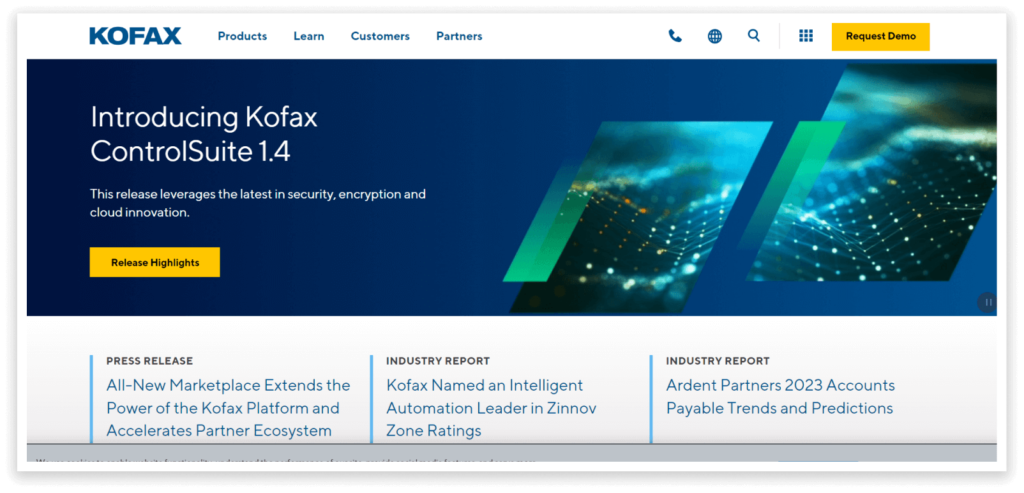
This platform offers features like attended and unattended automation, process analytics, and integrations with various enterprise systems.
Blue Prism
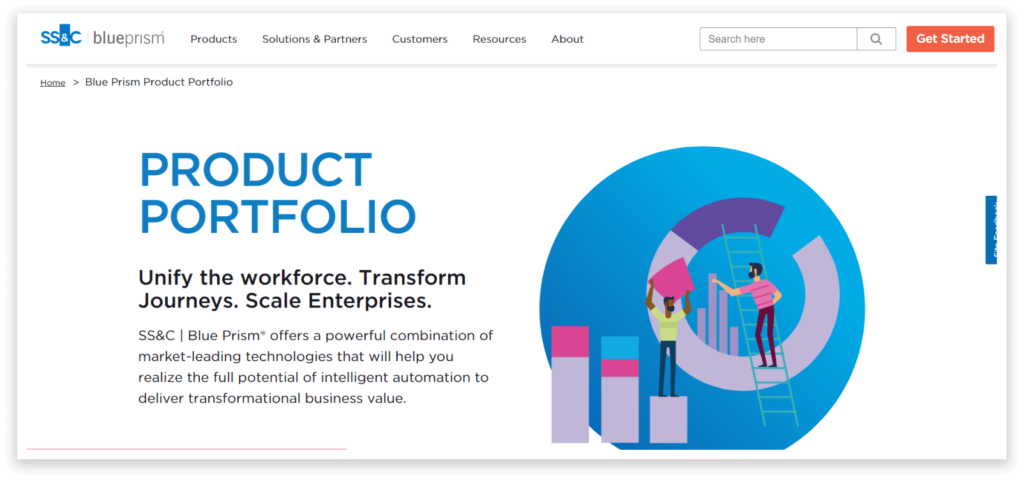
This tool offers robust features, including a visual process designer, reusable automation components, and scheduling and orchestration capabilities.
Data Analysis and Insights
AI can analyse large volumes of data quickly and accurately, providing valuable insights for business decision-making.
By leveraging AI techniques like machine learning and data mining, business owners can uncover patterns, trends, and correlations in data, helping them make informed decisions and optimise business processes.
Tools You Can Explore
Tableau
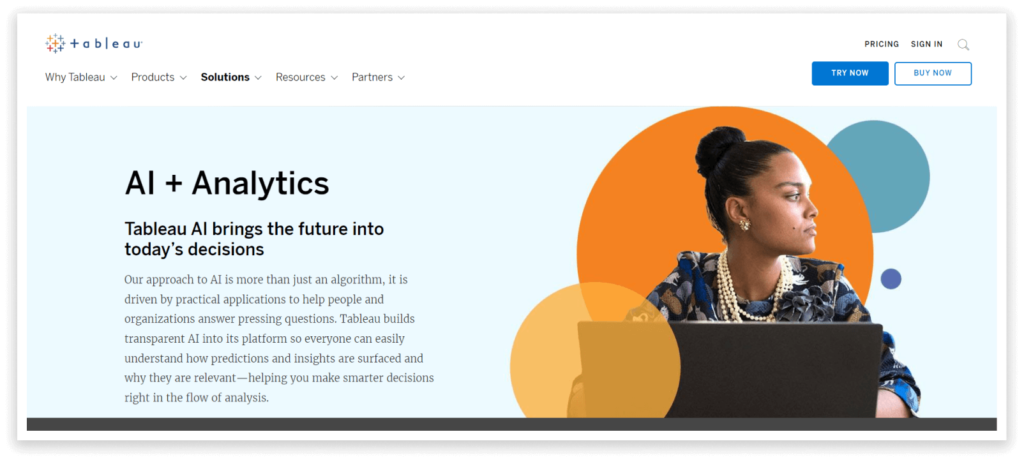
A widely used data visualisation platform that combines interactive visual analytics with AI-driven insights. It boasts a user-friendly interface to explore and analyse data, create interactive dashboards and more.
Microsoft Power BI
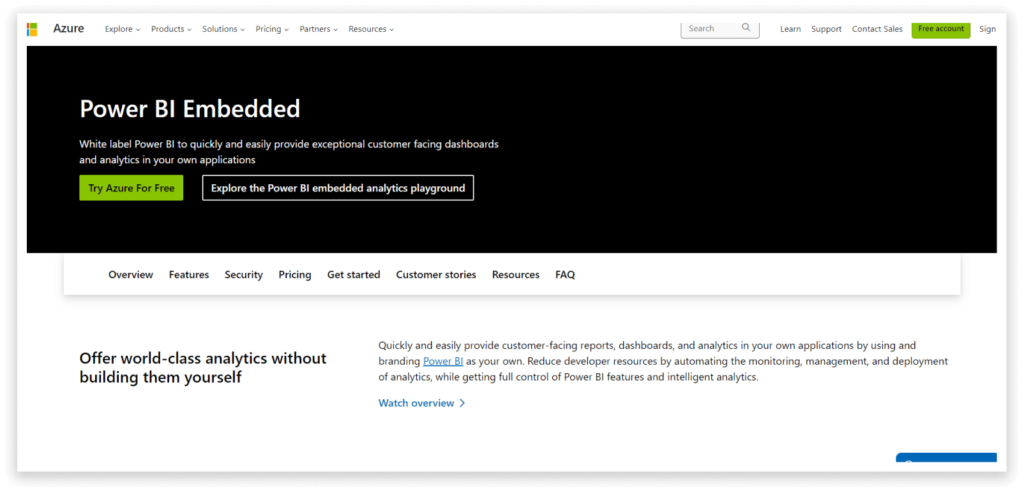
Power BI is a business intelligence platform that integrates AI and machine learning features for data analysis. It lets you connect to various data sources and create interactive reports and dashboards.
Google Cloud Platform

GCP provides a suite of AI-powered tools for data analysis, including BigQuery for data warehousing, Dataflow for data processing, and AI Platform for building and deploying machine learning models.
Customer Experience and Personalization
AI-powered chatbots and virtual assistants can enhance customer service by instantly responding to customer queries and offering personalised recommendations.
AI algorithms can analyse customer data to understand preferences, behaviour, and purchase patterns, enabling businesses to deliver personalised experiences and targeted marketing campaigns.
Tools You Can Explore
Salesforce Einstein

Salesforce Einstein is an AI-powered platform that integrates with Salesforce CRM to deliver personalised customer experiences. It analyses customer data, predicts customer behaviour, and provides personalised recommendations and content.
Optimizely
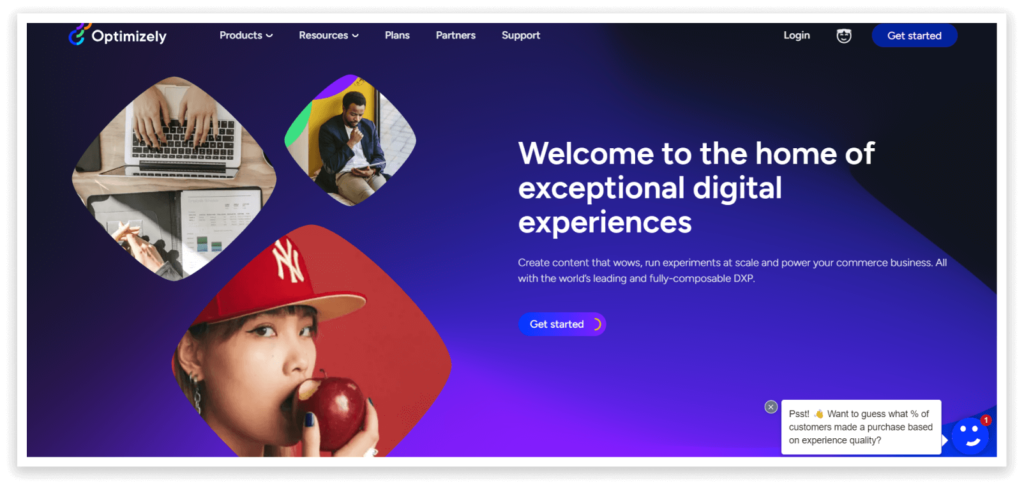
Optimizely is an experimentation and personalisation platform that uses AI and machine learning to optimise customer experiences. It allows you to test and personalise different elements of your website or app in real time based on customer data.
Dynamic Yield

Dynamic Yield is an AI-powered personalisation platform that provides real-time personalisation across various channels, including websites, mobile apps, email and more. It can deliver personalised product recommendations, messages and experiences.
Predictive Analytics and Forecasting
AI can analyse historical data to make predictions and forecasts, assisting business owners in anticipating market trends, demand patterns, and consumer behaviour.
By leveraging predictive analytics, businesses can optimise inventory management, pricing strategies and resource allocation, improving operational planning and cost savings.
Tools You Can Explore
Google Cloud AutoML
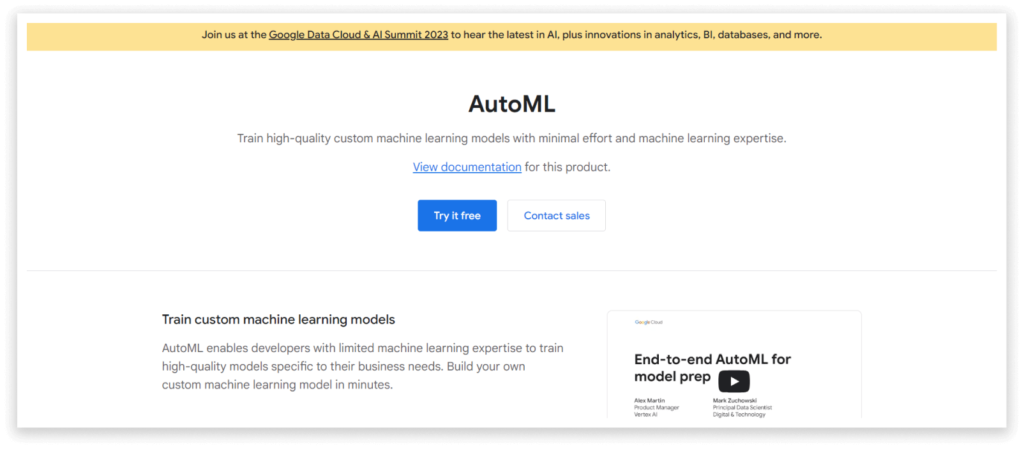
This tool allows businesses to build custom machine learning models without extensive coding expertise. It offers tools for image recognition, natural language processing and tabular data analysis for predictive modelling.
Microsoft Azure Machine Learning

This cloud-based platform enables businesses to build, deploy and manage predictive analytics models. It provides a wide range of tools and capabilities for data preprocessing, model training and evaluation.
RapidMiner

RapidMiner is a data science platform that provides AI and machine learning capabilities for predictive analytics. It offers a visual workflow interface for building predictive models, conducting data exploration and deploying models.
Fraud Detection and Risk Management
AI algorithms can identify anomalies and patterns indicative of suspicious activities, helping you detect and prevent fraud.
AI-powered systems can analyse large datasets in real-time, flag suspicious transactions, and provide risk assessments, strengthening fraud detection capabilities and safeguarding business interests.
Tools You Can Explore
Featurespace

Featurespace is an AI-powered platform specialising in fraud detection and prevention. It uses adaptive behavioural analytics and machine learning to interpret real-time data and identify suspicious patterns or anomalies indicative of fraud.
FICO Falcon Platform

The FICO Falcon Platform is a comprehensive solution for fraud detection and risk management. It combines AI and advanced analytics to detect fraud across various industries, including banking, insurance and e-commerce.
IBM Safer Payments
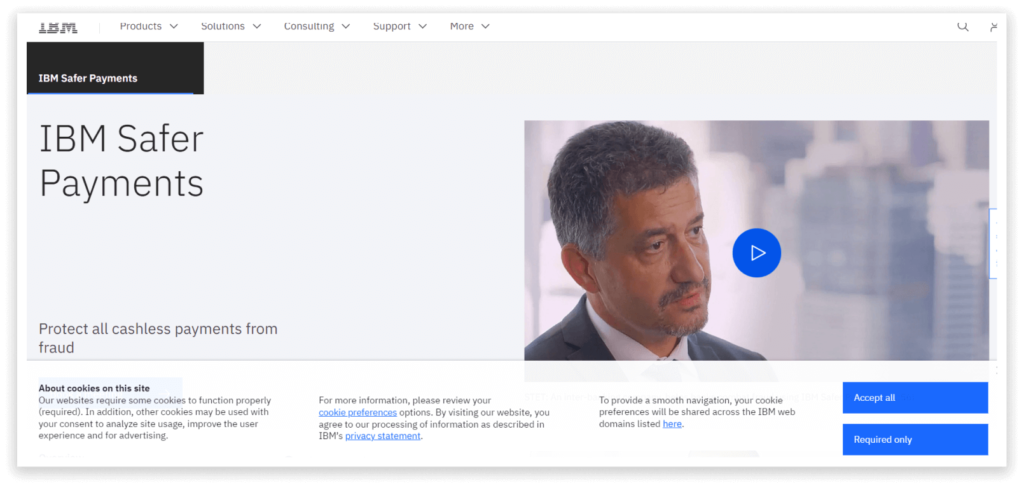
IBM Safer Payments is an AI-powered platform designed for fraud detection and prevention in the banking and payment industry. It combines AI, machine learning, and advanced analytics to identify fraudulent transactions and mitigate risks.
Process Optimisation and Decision Support
AI can optimise complex business processes by identifying bottlenecks, inefficiencies and areas for improvement.
You can leverage AI-powered decision support systems to analyse scenarios, simulate outcomes and generate recommendations, aiding in strategic planning and decision-making.
Tools You Can Explore
Amazon Web Services (AWS) Step Functions

AWS Step Functions is a serverless workflow orchestration service that enables businesses to automate and optimise complex processes. It provides capabilities for decision-making, state management and integration with other AWS services.
UiPath

UiPath is a leading robotic process automation (RPA) platform that allows businesses to automate repetitive tasks and optimise processes. It offers AI capabilities for intelligent automation, data extraction and decision-making to enhance operational efficiency.
Pega Platform

Pega Platform is an AI-powered business process management (BPM) platform that enables businesses to optimise and automate processes. It offers intelligent automation, case management and predictive analytics to streamline operations and improve decision-making.
Content and Visuals Generation
Generative AI tools can automatically create content, visuals or design elements, helping you save time and energy that would otherwise be spent manually crafting these items.
You can produce large amounts of content in a short time, ensuring that your business maintains a consistent presence. Generative AI platforms can also enrich your business’ creative process.
Tools You Can Explore
ChatGPT

One of the most popular AI tools, this free and accessible platform lets you generate content such as social media posts, ad copy and blog entries for your brand. ChatGPT can also write code and perform computations.
Midjourney
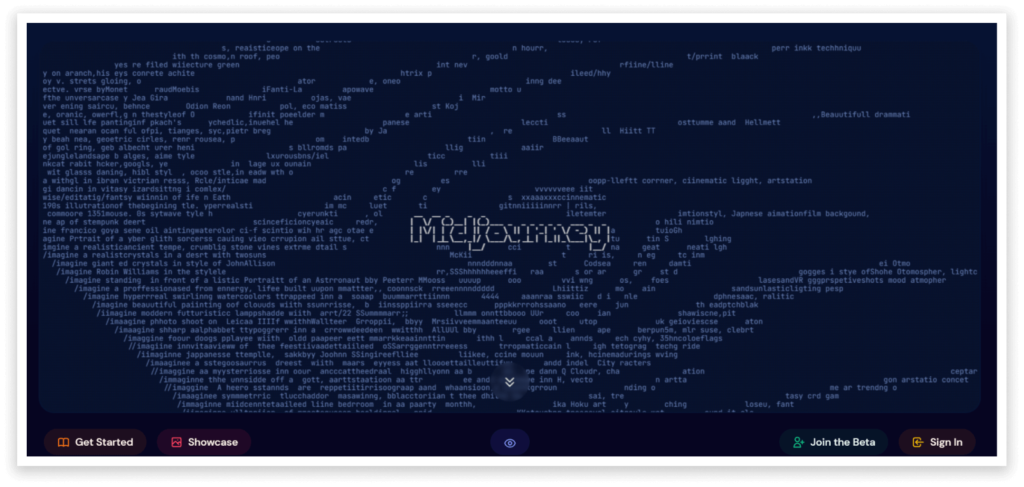
Midjourney is a generative AI tool that can create a vast range of AI images based on text inputs. This platform takes language-based prompts and quickly converts them into rich, high-quality visuals that can be used for your business.
Runway ML

This platform offers a selection of AI tools for artists and designers, helping them craft creative new visual content. These tools include image generation, video editing, text-to-image synthesis, style transfer and more.
The availability and specific offerings for each tool or platform may vary, so we recommend that you check with the respective vendors or technology providers to determine its accessibility in Singapore or suitability for your business needs.
Unlock Your Business’s Potential With Expert Web Solutions From JIN
With our team of talented designers and developers, we offer creative solutions to ensure that you can focus on what matters most for your business.
As a trusted web design and development agency in Singapore, we offer website optimisation and landing page optimisation services to ensure your site keeps functioning optimally and generates greater revenue. Contact us via this form or email us at hello@jin-design.com to start transforming your web presence with us!


